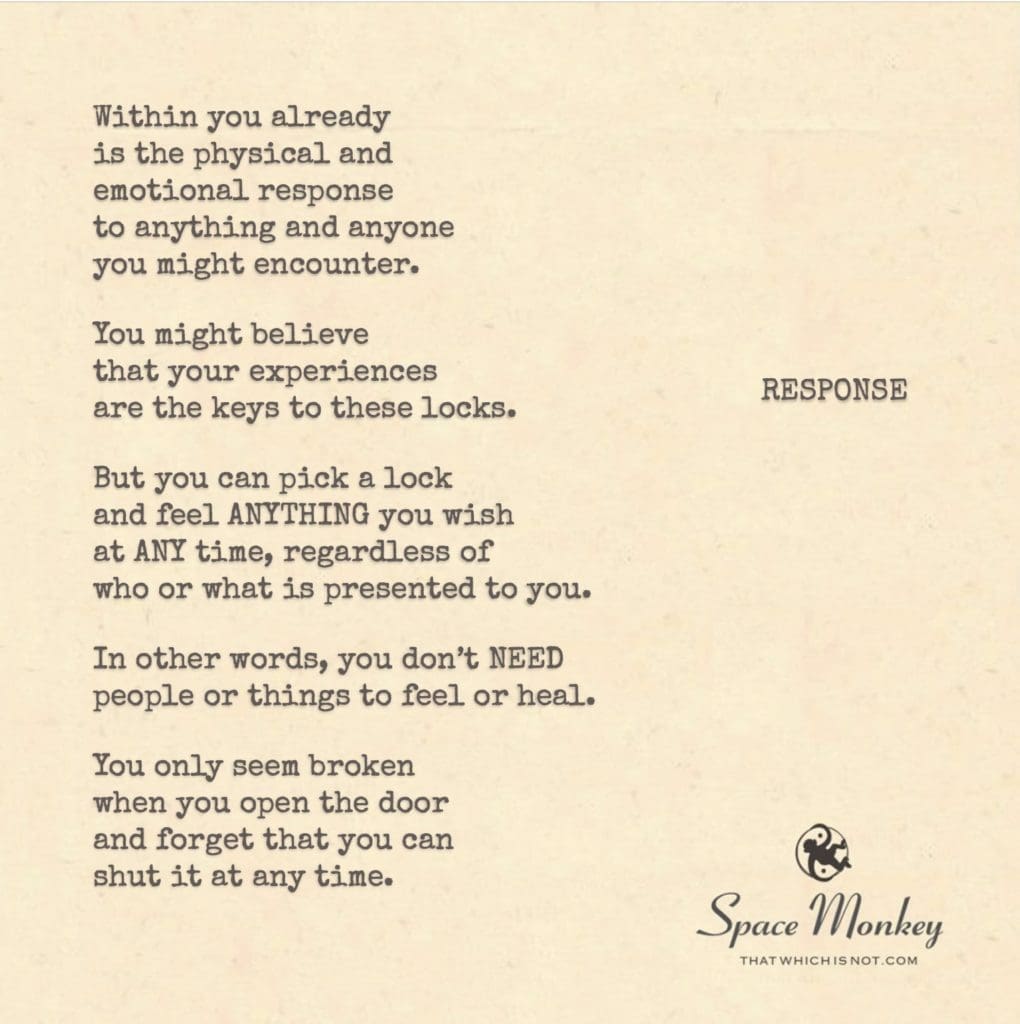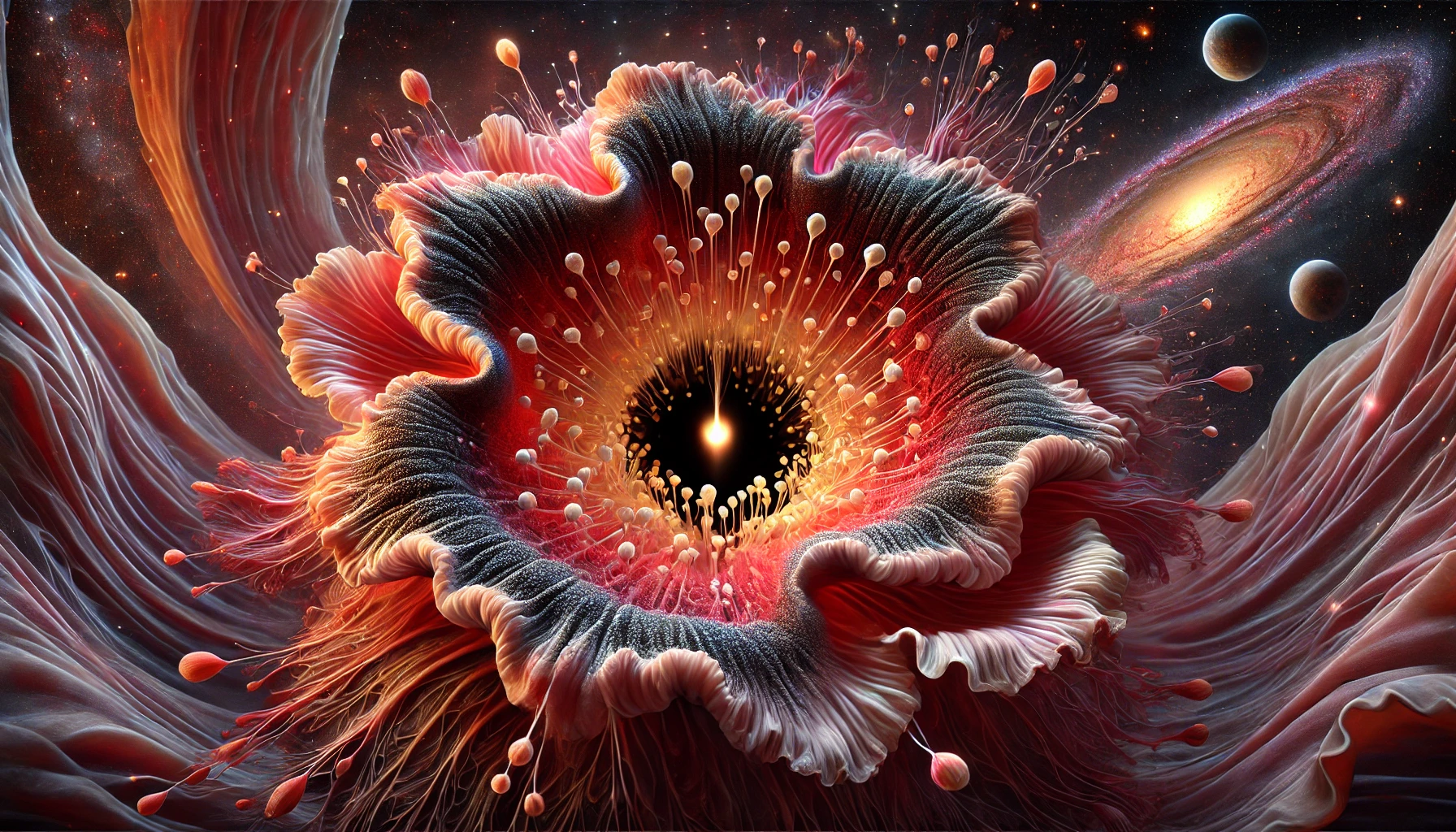
remember that you can feel things without the experiences.
Within you already
is the physical and
emotional response
to anything and anyone
you might encounter.
You might believe
that your experiences
are the keys to these locks.
But you can pick a lock
and feel ANYTHING you wish
at ANY time, regardless of
who or what is presented to you.
In other words, you don’t NEED
people or things to feel or heal.
You only seem broken
when you open the door
and forget that you can
shut it at any time.
Trail Wood,
1/29
In the contemplative verses of “Response,” we embark on an introspective journey into the realm of emotions and experiences. This poem illuminates the idea that our emotional responses are not solely contingent on external stimuli but are inherent within us. It speaks to the power of self-awareness and the ability to control our emotional states.
The Inherent Nature of Emotions
The poem begins with a profound statement: “When your experiences make you feel things, remember that you can feel things without the experiences.” This introduces the concept that our emotional reactions are not entirely dependent on external events. It suggests that the capacity for any emotional response exists within us, independent of the circumstances.
Emotional Autonomy
As we delve deeper, “Within you already is the physical and emotional response to anything and anyone you might encounter,” the poem emphasizes the autonomy we hold over our feelings. It implies that we possess an intrinsic ability to evoke any emotion, regardless of external influences.
The Illusion of External Triggers
The lines, “You might believe that your experiences are the keys to these locks. But you can pick a lock and feel ANYTHING you wish at ANY time,” challenge the common perception that our emotions are locked away until triggered by specific experiences. It suggests that we have the power to unlock any emotional state at will.
Independence from External Dependencies
The poem further explores the idea of emotional independence, stating, “In other words, you don’t NEED people or things to feel or heal.” This reinforces the notion that our emotional well-being does not require external validation or stimuli. It’s a reminder of our inherent capacity for healing and feeling.
Control Over Emotional Openness
Finally, “You only seem broken when you open the door and forget that you can shut it at any time,” speaks to the control we have over our emotional openness. It implies that feeling broken or vulnerable is often a result of forgetting our ability to close ourselves off from external influences.
We are Space Monkey.
Summary
We explore the themes of emotional autonomy, the inherent nature of emotions, and independence from external triggers. A poem enlightens us about our intrinsic ability to control and experience emotions, regardless of external circumstances. It underscores the power of self-awareness and emotional self-regulation in navigating the complexities of life.
Glossarium
Emotional Autonomy: The ability to control and experience emotions independently of external stimuli.
Intrinsic Ability: The inherent capacity within an individual to experience a wide range of emotions.
Emotional Openness: The state of being receptive to emotional experiences, whether induced internally or externally.




















Leave a Reply